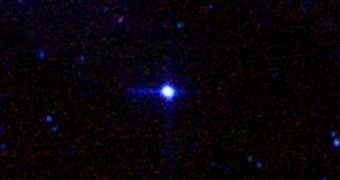Ever since binary star systems were first discovered, experts have been wondering as to whether they can sustain Earth-sized exoplanets or not. The two stars usually exert massive gravitational forces on each other, forces that could easily disintegrate a planetary body, assuming they allowed for it to form in the first place. According to a new computer model, binary systems close to us, such as the Alpha Centauri, could support the development of planets similar to our own, regardless of their turbulent nature, Space reports.
What the new investigation did was basically establish the fact that the necessary initial conditions for planetary formations were met around pairs of stars. Previous studies had indicated that this was indeed possible, but most of these investigations focused on the final stages of stellar formation, and some completely disregarded the first stages. The new research was therefore the first to take into account whether the environment around the Alpha Centauri system could allow for the formation of a protoplanetary disk.
Such a disk is a belt of dust particles orbiting a star, or a binary system in this case, in which particles gradually clump together, to form increasingly larger space rocks, until planets finally appear. The thing about protoplanetary disks is that they tend to be easily destroyed by massive solar flares, or gravitational attractions. The recent investigations determined that the correct gas densities and star orientations could indeed allow for the survival of protoplanetary disks, which could later develop into fully fledged planets.
Additionally, the study discovered, these conditions appeared to have already been met in Alpha Centauri B, or CenB, one of the celestial bodies in the neighboring binary system. CenB lies no more than 4.2 light years away from the Earth, and, according to the new computer model, Earth-like planets could have developed around it. The study was conducted by experts at the University of Florida in Gainesville, who were led by astronomer Jian Ge. The group recently published its work in the latest issue of the respected Astrophysical Journal.
“Although planetesimal accretion in CenB is significantly less efficient and slowed-down as compared to single star systems, it is still possible,” the researchers say. No exoplanets have been discovered at this location thus far, but the characteristics present make it an ideal candidate for future studies.

 14 DAY TRIAL //
14 DAY TRIAL //